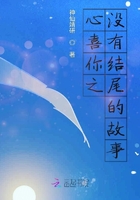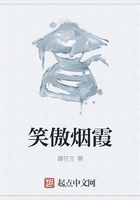I had had an idea of getting a billet in one of the big wool-stores --I was a fair wool expert --but Mary was afraid of the drink.
I could keep well away from it so long as I worked hard in the Bush.
I had gone to Sydney twice since I met Mary,once before we were married,and she forgave me when I came back;and once afterwards.
I got a billet there then,and was going to send for her in a month.
After eight weeks she raised the money somehow and came to Sydney and brought me home.I got pretty low down that time.)`But,Mary,'I said,`it would have been different this time.
You would have been with me.I can take a glass now or leave it alone.'
`As long as you take a glass there is danger,'she said.
`Well,what did you want to advise me to come out here for,if you can't stand it?Why didn't you stay where you were?'I asked.
`Well,'she said,`why weren't you more decided?'
I'd sat down,but I jumped to my feet then.
`Good God!'I shouted,`this is more than any man can stand.
I'll chuck it all up!I'm damned well sick and tired of the whole thing.'
`So am I,Joe,'said Mary wearily.
We quarrelled badly then --that first hour in our new home.
I know now whose fault it was.
I got my hat and went out and started to walk down the creek.
I didn't feel bitter against Mary --I had spoken too cruelly to her to feel that way.Looking back,I could see plainly that if I had taken her advice all through,instead of now and again,things would have been all right with me.I had come away and left her crying in the hut,and James telling her,in a brotherly way,that it was all her fault.The trouble was that I never liked to `give in'or go half-way to make it up --not half-way --it was all the way or nothing with our natures.
`If I don't make a stand now,'I'd say,`I'll never be master.
I gave up the reins when I got married,and I'll have to get them back again.'
What women some men are!But the time came,and not many years after,when I stood by the bed where Mary lay,white and still;and,amongst other things,I kept saying,`I'll give in,Mary --I'll give in,'and then I'd laugh.They thought that I was raving mad,and took me from the room.But that time was to come.
As I walked down the creek track in the moonlight the question rang in my ears again,as it had done when I first caught sight of the house that evening --`Why did I bring her here?'
I was not fit to `go on the land'.The place was only fit for some stolid German,or Scotsman,or even Englishman and his wife,who had no ambition but to bullock and make a farm of the place.
I had only drifted here through carelessness,brooding,and discontent.
I walked on and on till I was more than half-way to the only neighbours --a wretched selector's family,about four miles down the creek,--and I thought I'd go on to the house and see if they had any fresh meat.
A mile or two farther I saw the loom of the bark hut they lived in,on a patchy clearing in the scrub,and heard the voice of the selector's wife --I had seen her several times:she was a gaunt,haggard Bushwoman,and,I supposed,the reason why she hadn't gone mad through hardship and loneliness was that she hadn't either the brains or the memory to go farther than she could see through the trunks of the `apple-trees'.
`You,An-nay!'(Annie.)
`Ye-es'(from somewhere in the gloom).
`Didn't I tell yer to water them geraniums!'
`Well,didn't I?'
`Don't tell lies or I'll break yer young back!'
`I did,I tell yer --the water won't soak inter the ashes.'
Geraniums were the only flowers I saw grow in the drought out there.
I remembered this woman had a few dirty grey-green leaves behind some sticks against the bark wall near the door;and in spite of the sticks the fowls used to get in and scratch beds under the geraniums,and scratch dust over them,and ashes were thrown there --with an idea of helping the flower,I suppose;and greasy dish-water,when fresh water was scarce --till you might as well try to water a dish of fat.
Then the woman's voice again --
`You,Tom-may!'(Tommy.)
Silence,save for an echo on the ridge.
`Y-o-u,T-o-m-MAY!'
`Ye-e-s!'shrill shriek from across the creek.
`Didn't I tell you to ride up to them new people and see if they want any meat or any think?'in one long screech.
`Well --I karnt find the horse.'
`Well-find-it-first-think-in-the-morning and.And-don't-forgit-to-tell-Mrs-Wi'son-that-mother'll-be-up-as-soon-as-she-can.'
I didn't feel like going to the woman's house that night.
I felt --and the thought came like a whip-stroke on my heart --that this was what Mary would come to if I left her here.
I turned and started to walk home,fast.I'd made up my mind.
I'd take Mary straight back to Gulgong in the morning --I forgot about the load I had to take to the sheep station.
I'd say,`Look here,Girlie'(that's what I used to call her),`we'll leave this wretched life;we'll leave the Bush for ever!
We'll go to Sydney,and I'll be a man!and work my way up.'
And I'd sell waggon,horses,and all,and go.
When I got to the hut it was lighted up.Mary had the only kerosene lamp,a slush lamp,and two tallow candles going.She had got both rooms washed out --to James's disgust,for he had to move the furniture and boxes about.She had a lot of things unpacked on the table;she had laid clean newspapers on the mantel-shelf --a slab on two pegs over the fireplace --and put the little wooden clock in the centre and some of the ornaments on each side,and was tacking a strip of vandyked American oil-cloth round the rough edge of the slab.
`How does that look,Joe?We'll soon get things ship-shape.'
I kissed her,but she had her mouth full of tacks.I went out in the kitchen,drank a pint of cold tea,and sat down.
Somehow I didn't feel satisfied with the way things had gone.
II.`Past Carin''.















